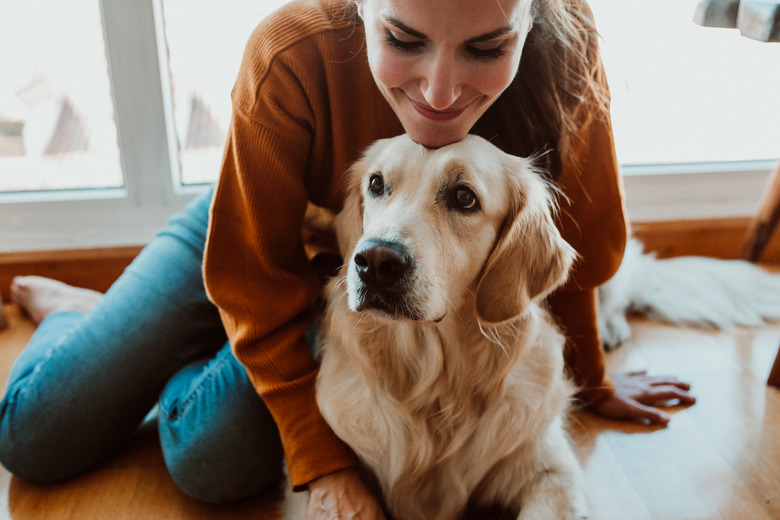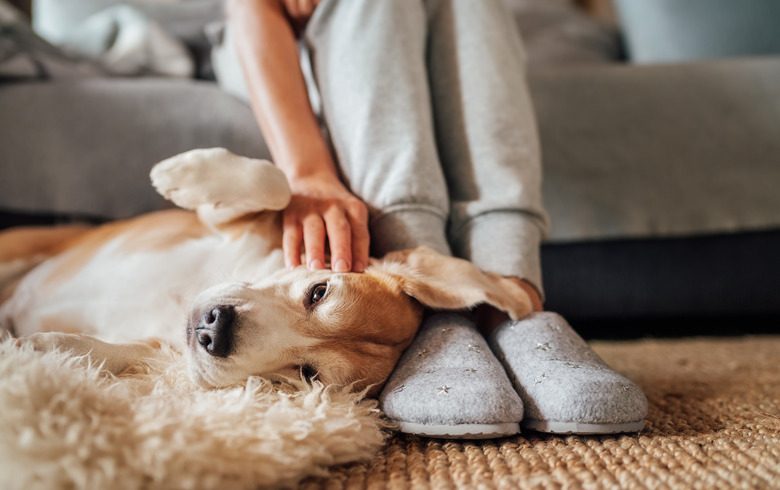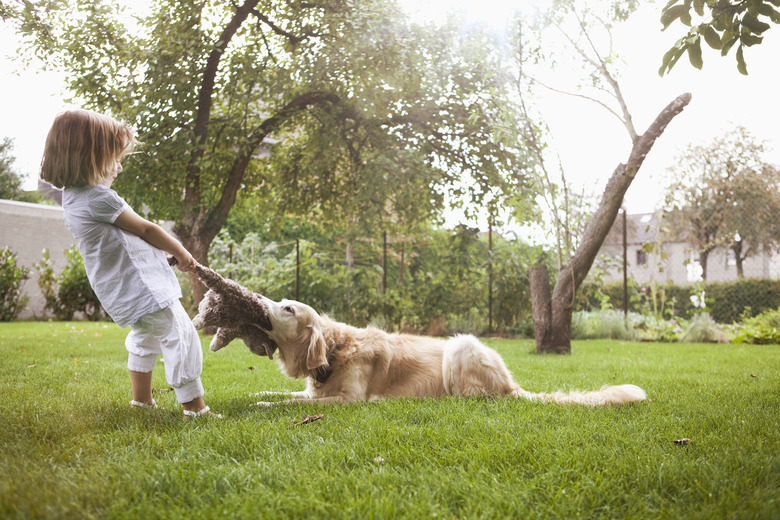How Long Before A Dog Bonds With A New Owner?
Bringing a new dog into your life requires getting to know the pet and letting her get to know you. Dogs have personalities just as humans do, so it can take more than a few days for a new pet and their new family to build trust, especially if a rescue dog has been abused.
Understanding how to make and strengthen connections with pets through positive reinforcement will help you develop a lifetime bond between you and your new dog and shorten the getting-to-know-you process.
Bonding with puppies
Bonding with puppies
Puppies will bond to humans sooner than older dogs because they have less history with and fewer attachments to other people and places, according to PetCoach.com. The ideal time for bonding is during he first three to 12 weeks, according to the site. Think of baby chicks following the first moving creature they see, thinking it's their mother.
If the new puppy has had no previous owner, it won't need to "de-attach" from that pet parent and become attached to its new owner. The bonding process with you can take just a few days because the puppy is so dependent on you for everything.
READ MORE about dog training: How To Train Your Dog With German Commands
Bonding with adult dogs
Bonding with adult dogs
Adult dogs have usually created routines, based on the previous people they've been with and their past living quarters. These habits will take an adjustment period to change, especially if the dog had a previous owner for years. In order to develop a strong bond with you, an adult dog must feel you are providing a safe and happy environment. This is why it's so important to prepare your home for a new dog.
For example, don't keep experimenting with new water and food bowl locations, bed placements, blankets, and other items the dog will use regularly. If the house has other dogs, make sure your new dog has her own toys, bed, water and food bowls, and other items from day one. This will prevent territorial issues and potential fights.
The sooner a dog accepts her new environment, the sooner she can focus on bonding with you. Create routines for playing, eating, potty, and sleeping if your schedule permits. Designate specific areas of the yard or home for the dog potty. Be consistent with rules for sitting on furniture so the dog doesn't get confused by mixed messages from you and other family members, which can decrease trust and bonding.
Bonding with rescue dogs
Bonding with rescue dogs
Rescue dogs from a shelter can have a variety of personality traits, based on how long they were in the shelter, how much they were socialized, and if they were abused before they were rescued. It can take a long time for a dog with a traumatic past to adjust to its new surroundings, explains Dog is Good.com. It will take less time for a well-socialized dog to get used to its new home than it will for an under-socialized or fearful dog. Abused dogs can take a year or more before they stop shaking and peeing when meeting new people.
READ MORE: What to Do if Your Dog Has Separation Anxiety
Be consistent with your pet
Be consistent with your pet
If you keep changing rules, habits, and routines, your dog won't know who are you or if she can trust you. Talk to your vet about your dog's breed and its possible tendencies. For example, some breeds were used as retrievers, others as carriage dogs, and others as guard dogs. Some dogs are more likely to want to dig, while others will want to chase squirrels, birds, and cars (based on their genetics from hundreds of years of training). For them to truly be happy in their new dog home, they should be allowed activities that allow them to express their true nature.
Once you know what to expect from your dog in terms of specific behaviors, set up the games and obedience training you'll start as soon as you bring the pet home. If you can't commit to regular walks and exercise outings, consider hiring a professional pet sitter or find a neighbor who would like to spend time with your pet. Keep your pet's diet the same for the first two weeks it's home, recommends the American Kennel Club.
An obedience class or three is a good idea for just about any dog. All dogs that are adjusting to a new home will need to learn new rules, and a trainer can help with that. If any bad habits develop such as aggression during playtime or being fearful about petting, a training session can nip the problem in the bud. Whether you are bonding with a puppy or a new dog, eventually they will become the best friend you always knew they could be.


